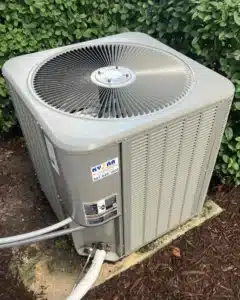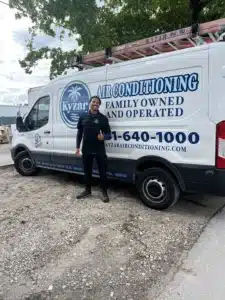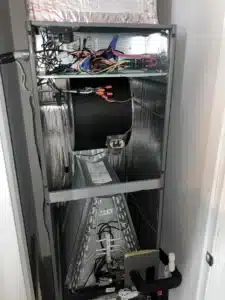How Aging HVAC Equipment Impacts Energy Bills
In a warm coastal climate like West Palm Beach, air...
In today’s urban environments, where we spend a significant portion of our lives indoors, the quality of the air we breathe is paramount to our health and well-being. HVAC (Heating, Ventilation, and Air Conditioning) systems play a crucial role in ensuring that indoor spaces maintain clean and healthy air. Let’s delve into the essential functions of HVAC systems in safeguarding indoor air quality (IAQ) and why it matters for homes and businesses in Florida.
Effective ventilation is the foundation of good indoor air quality. HVAC systems are designed to circulate and exchange indoor air with fresh outdoor air regularly. This process not only replenishes oxygen levels but also removes indoor pollutants such as volatile organic compounds (VOCs), carbon dioxide, and odors. Proper ventilation helps prevent the buildup of contaminants and ensures a continuous flow of fresh, clean air throughout the building.
Air filtration is another critical aspect of maintaining IAQ. HVAC systems use filters to trap airborne particles like dust, pollen, pet dander, mold spores, and bacteria. Filters range in efficiency, with higher-rated filters such as HEPA (High-Efficiency Particulate Air) filters capable of capturing smaller particles effectively. Regularly replacing or cleaning filters ensures they can continue to remove pollutants from the air, promoting healthier indoor environments.
Controlling indoor humidity levels is essential, especially in Florida’s humid climate. HVAC systems regulate humidity by removing excess moisture through dehumidification or adding moisture through humidification as needed. Proper humidity levels help prevent mold growth, which thrives in damp conditions, and reduce the spread of allergens and pathogens that thrive in humid environments.
Maintaining a comfortable indoor temperature is not just about comfort—it also impacts IAQ. HVAC systems distribute conditioned air evenly throughout the building, ensuring consistent temperatures in every room. This regulation helps prevent condensation and moisture buildup, which can lead to mold growth and air quality issues.
Advanced HVAC systems may incorporate additional air purification technologies to enhance IAQ further. These technologies include UV germicidal irradiation, which neutralizes airborne pathogens like bacteria and viruses, and ionization, which reduces airborne pollutants and odors. Integrating such technologies into HVAC systems provides an additional layer of protection against indoor air contaminants.
Regular maintenance of HVAC systems is crucial for optimizing their performance and preserving IAQ. HVAC technicians conduct inspections, clean components, and check for potential issues that could compromise air quality. Routine maintenance not only extends the lifespan of HVAC equipment but also ensures it continues to operate efficiently in maintaining clean indoor air.
In summary, HVAC systems are indispensable for maintaining high indoor air quality by regulating ventilation, filtration, humidity, and temperature. Whether in residential homes or commercial buildings in Florida, these systems play a vital role in creating healthy indoor environments conducive to well-being and productivity. For expert guidance on improving IAQ and maintaining your HVAC system, contact our team of HVAC professionals. We’re committed to enhancing comfort and air quality through reliable HVAC solutions tailored to your specific needs.

In a warm coastal climate like West Palm Beach, air...

Living in West Palm Beach means living with heat, humidity,...

Florida HVAC systems work harder than those in almost any...

Indoor air quality plays a major role in how a...

Ventilation is one of the most important yet often overlooked...

In Florida, air conditioning is not a luxury. It is...